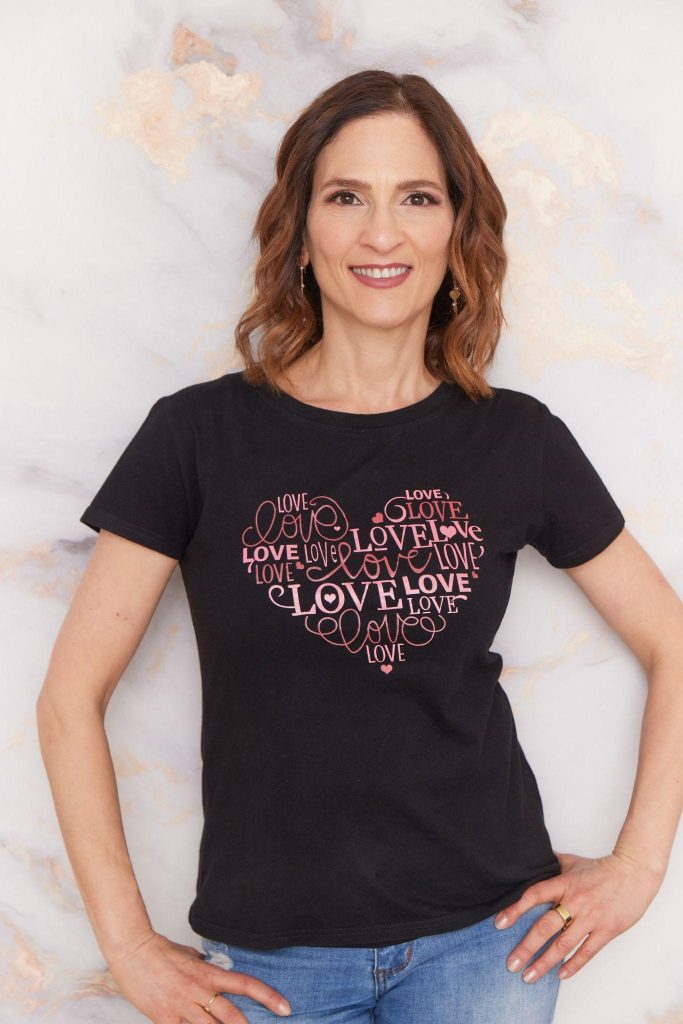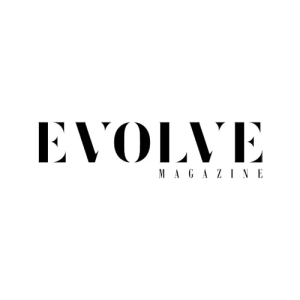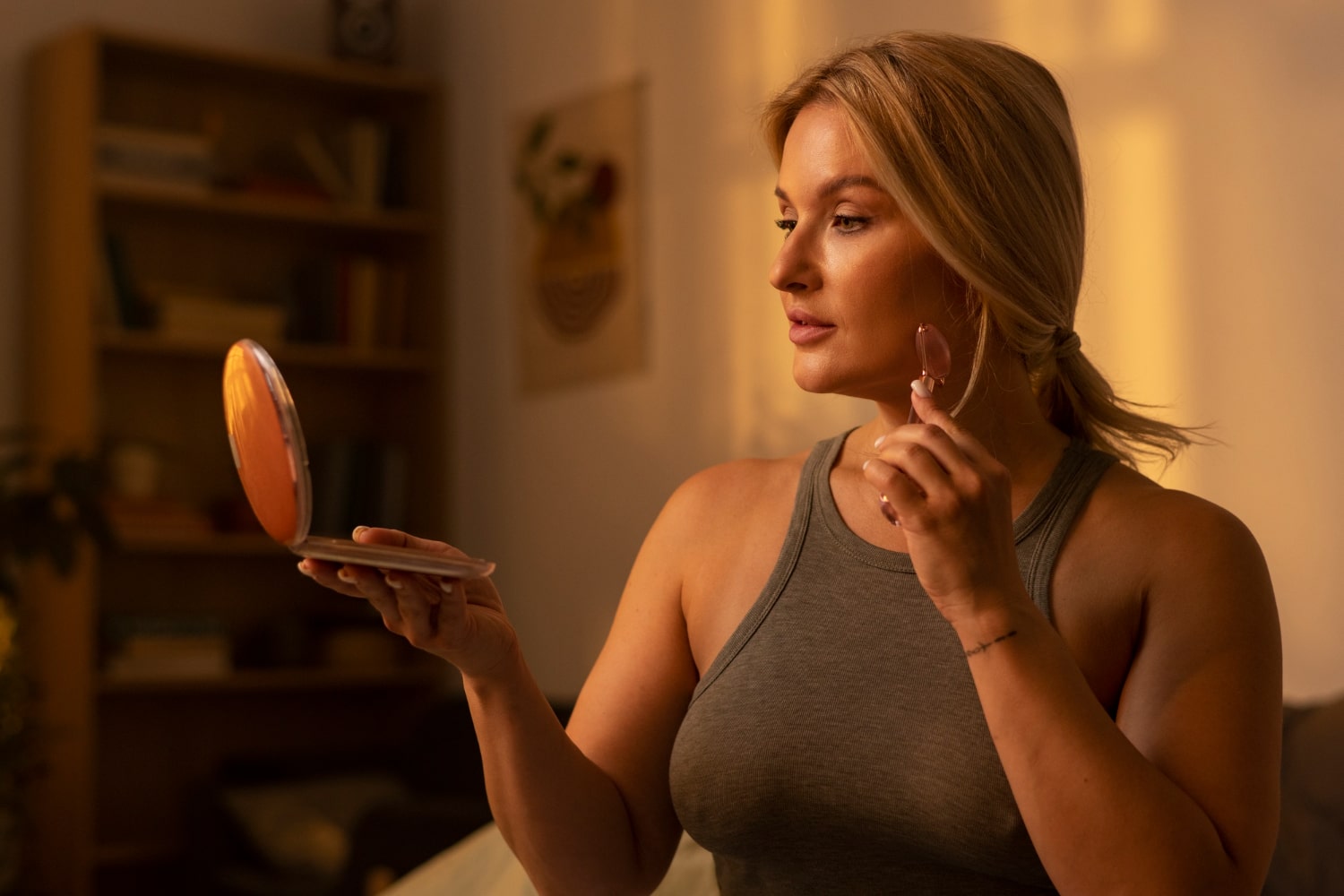I often reflect back to my twenties and thirties and ask myself: If I could change anything knowing what I know now to help myself thrive through menopause, what would that be? I am grateful for my past experiences, which have led me to where I am today. But if I had to change one thing, it would be to learn as much as I could about the subject so I would be better prepared for what would come. When I had my third child in my early 40s, I thought some of the symptoms I was experiencing were postpartum-related, like exhaustion, thinning hair, weight gain, phantom smells, mood swings, and sleep issues, just to name a few. I remember asking my friends and colleagues who were around the same age as me if they were feeling things too. They all said no. I felt alone and like I was going crazy. At 47 I got my first hot flash, and that’s the first time I put two and two together thinking “Am I in menopause?” I didn’t even know the word perimenopause existed. Looking back, I now know I was in perimenopause for 14 years total, 9 of which I had no idea I was in it. My mom had hot flashes for years and a hysterectomy at 50, but other than her personal experience I never thought much about it nor spoke to anyone about this phase of life. This wasn’t unusual because my mother never talked to her mother (my grandmother) about it either. It just wasn’t discussed back then. Unfortunately, nothing and nobody prepared me for perimenopause and menopause.
Thankfully, things are changing, and I’m grateful to be part of that change.We learned about puberty in grade school, but not menopause, and that needs to change.
The more research I did, the more I knew this information needed to be shared far and wide, so I dedicated my life to helping people understand it better. My website—www.wearemorphus.com—is the culmination of this. Now that I’m in menopause, I’m able to look back on my 18-year journey (14 years in perimenopause and 4 years in menopause) into this phase of life with knowledge, experience, and wisdom. Menopause is often used as a blanket term to describe the hormonal changes and their accompanying symptoms that women and individuals born with a uterus go through around midlife.
There are three stages to this process of change:
- Perimenopause is the time leading up to menopause. This stage can begin as early as age 35 but typically occurs in women in their 40s. Perimenopause can last anywhere from two months to 14+ years. Irregular periods, hot flashes, sleep issues, mood swings, weight gain, low libido, forgetfulness, and vaginal dryness characterize it. These symptoms are associated with the fluctuation of hormones, including estrogen, progesterone, testosterone, and cortisol.
- Menopause is defined as the absence of a period for 12 consecutive months (or 365 days). A woman is in perimenopause until she reaches that milestone, which is technically just one day.
- Postmenopause is the stage of life that follows menopause. I often say that menopause and postmenopause are the same since both involve the complete cessation of menstruation. Hormone fluctuations during postmenopause tend to calm down significantly, which can mean fewer symptoms for many of us. However, we’re all unique and experience menopause differently, so some women continue to have symptoms even once they are in menopause. It’s important to note the dramatically lower levels of estrogen in postmenopausal women put women at a greater risk for osteoporosis, heart disease, and dementia.
Know the symptoms of perimenopause, menopause, and postmenopause
When I was in perimenopause and suffering from many symptoms, including hot flashes, night sweats, increased anxiety, frozen shoulder, insulin resistance, weight gain, and insomnia, I did some digging. I found out there were 34 ‘recognized’ symptoms of menopause. However, that number didn’t seem right to me, so I started to track my menopausal symptoms personally and came to discover (through my research, medical journals, and speaking with others) that there are 103+ signs and symptoms of menopause. That’s way more than the 34 I had heard about. If you’re curious about those symptoms, I have listed all of them on my website here.
The biggest takeaway from my 24+ years as an educator in the health and wellness space is to listen to your body. If you’re in the age range of perimenopause or menopause (35 and up) and are experiencing symptoms associated with this transition, I want to encourage you to talk to and consult with healthcare professionals who understand and are trained in menopause. I’d also like women to be aware that apart from hormone therapy and medication, there are several alternatives available, such as Morphus supplements, that can provide real relief during menopause.
Empowering yourself by doing your research and chatting with other women who are experiencing the same things is essential so you know you are NOT alone!
Contribute to our research
I’d love you to help further our menopause research. All our surveys are on my website, which you can access here. I would be grateful if you could fill out as many as you can. We’ve published two White Papers summarizing our findings and have more on the way!
Bottom line
No woman should enter her perimenopausal and menopausal years without information on what to expect and how to pave the road for a healthier journey. I encourage all older women to mentor their daughters, granddaughters, nieces, and friends. We all have the power to create, nurture, and transform.
Sources
DUTCH test. Precision Analytical Inc.
Menopause & me. The North American Menopause Society
https://wearemorphus.com/pages/research-surveys

About Andrea:
Andrea Donsky is a nutritionist (19+ years) who is in menopause. She’s a Menopause Researcher and Educator, and she’s the Co-founder of WeAreMorphus.com, a company that empowers you to take control of your health and symptoms. You can find her on Instagram and TikTok as @andreadonsky, and you can subscribe to her podcast, “Menopause Reimagined,” where she discusses all things perimenopause and menopause.
Website: https://wearemorphus.com/











